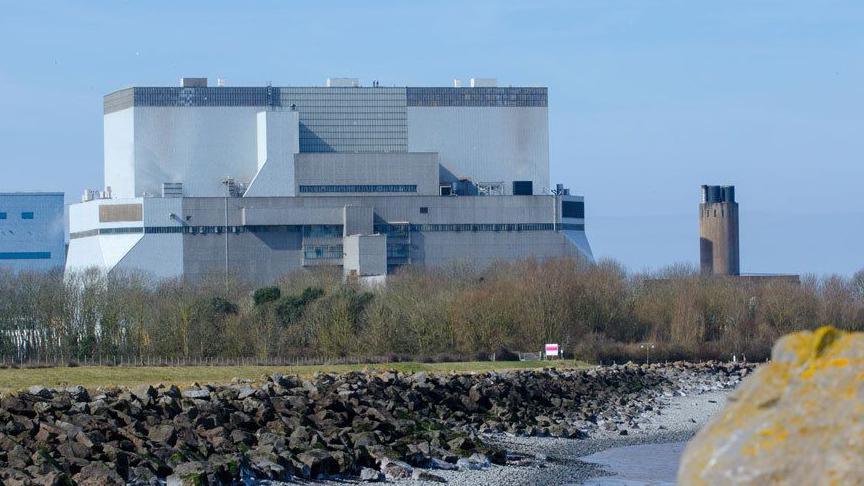Residents 'horrified' at nuclear plant saltmarsh plans

Hinkley Point C's first unit is expected to be operational in 2027
- Published
Campaigners are fighting to stop plans to turn 1,500 acres of land into a saltmarsh to compensate for the environmental impact of a nuclear power station.
EDF Energy says its proposals for a cooling system at Hinkley Point C will see 44 tonnes of fish a year ingested and killed.
To compensate for this, it is proposing to create a large saltmarsh at one of four sites along the River Severn, one of which is near Kingston Seymour in North Somerset.
But local residents say "destroying one habitat to create another" is a "horrifying" concept, which would destroy agricultural land and in turn livelihoods.
EDF says it is "obliged to make environmental improvements" in conjunction with the construction of the power station.
It argues the new marshes would provide safe habitats for fish and animals, improve water quality and reduce the risk of localised flooding.
The company said it is still "exploring options" which could include "pockets" of saltmarsh at different locations.
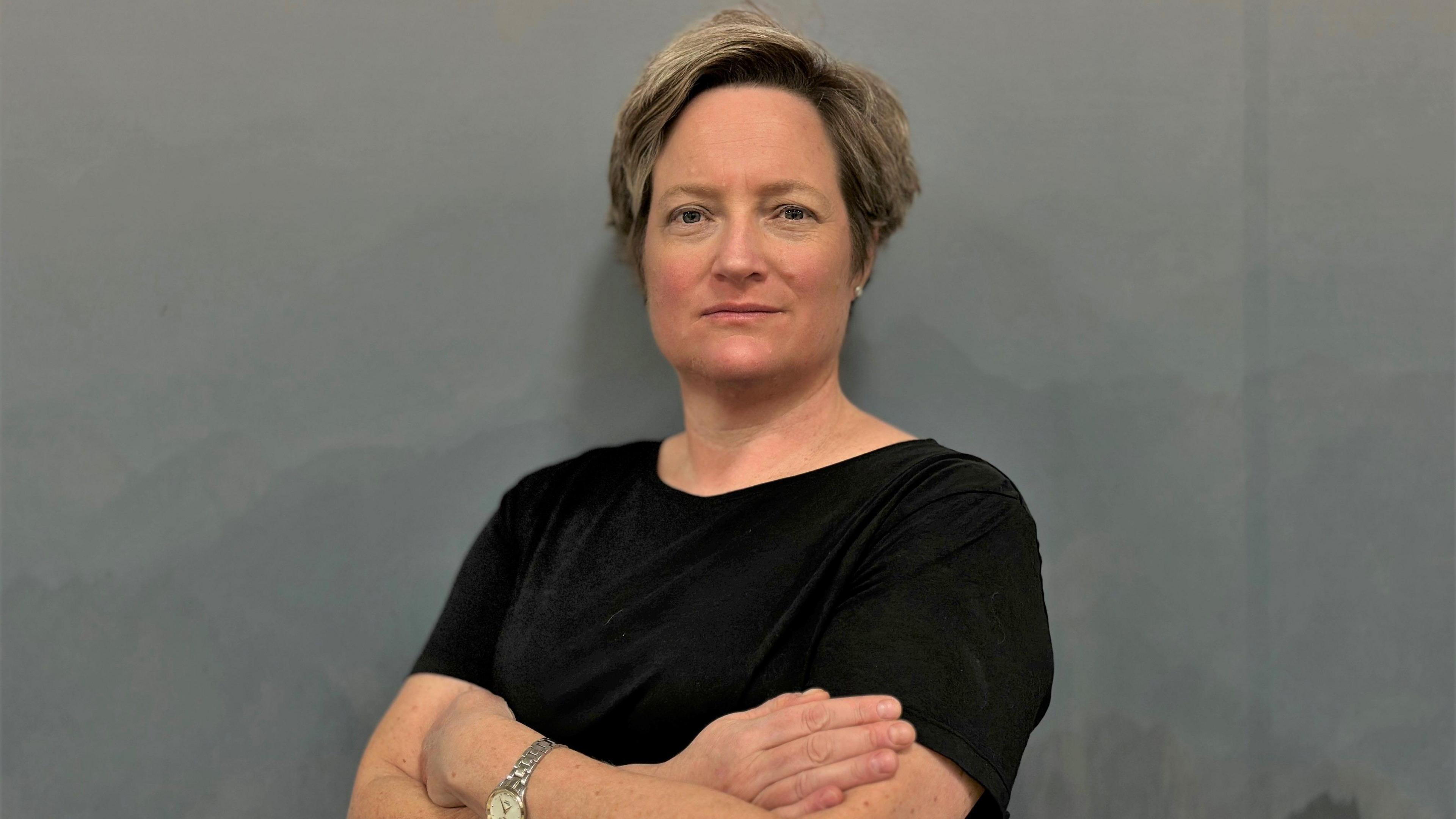
Ms Stuckey says the proposals are "unjustified and unfair"
Claire Stuckey is from a family of farmers who have lived in Kingston Seymour for generations.
If the saltmarsh is created there, she worries it will "render the farming business unviable" due to its close proximity.
"It's completely unrealistic, and actually inhumane," she said.
"How you can propose to take someone's land and effectively cease their livelihood?People have got their life savings invested in businesses, from camping and tourism, to farming and agriculture.
"There's a huge amount of anxiety around this proposal. People can't live their day-to-day lives, it's a constant worry that's hanging over us."
'Inhumane'
Ms Stuckey says not only would be businesses be affected, but the landscape and habitats would struggle to accommodate the change.
The Severn Estuary has the second-highest tidal range in the world, rising up to 15m (49ft).
"The question is, can you create saltmarsh? Or will it be just be silty, muddy and unusable land, that actually is probably quite dangerous?" said Ms Stuckey.
"We're absolutely going to fight this. We're going to enable and empower everyone to have a voice. We will react as a community."
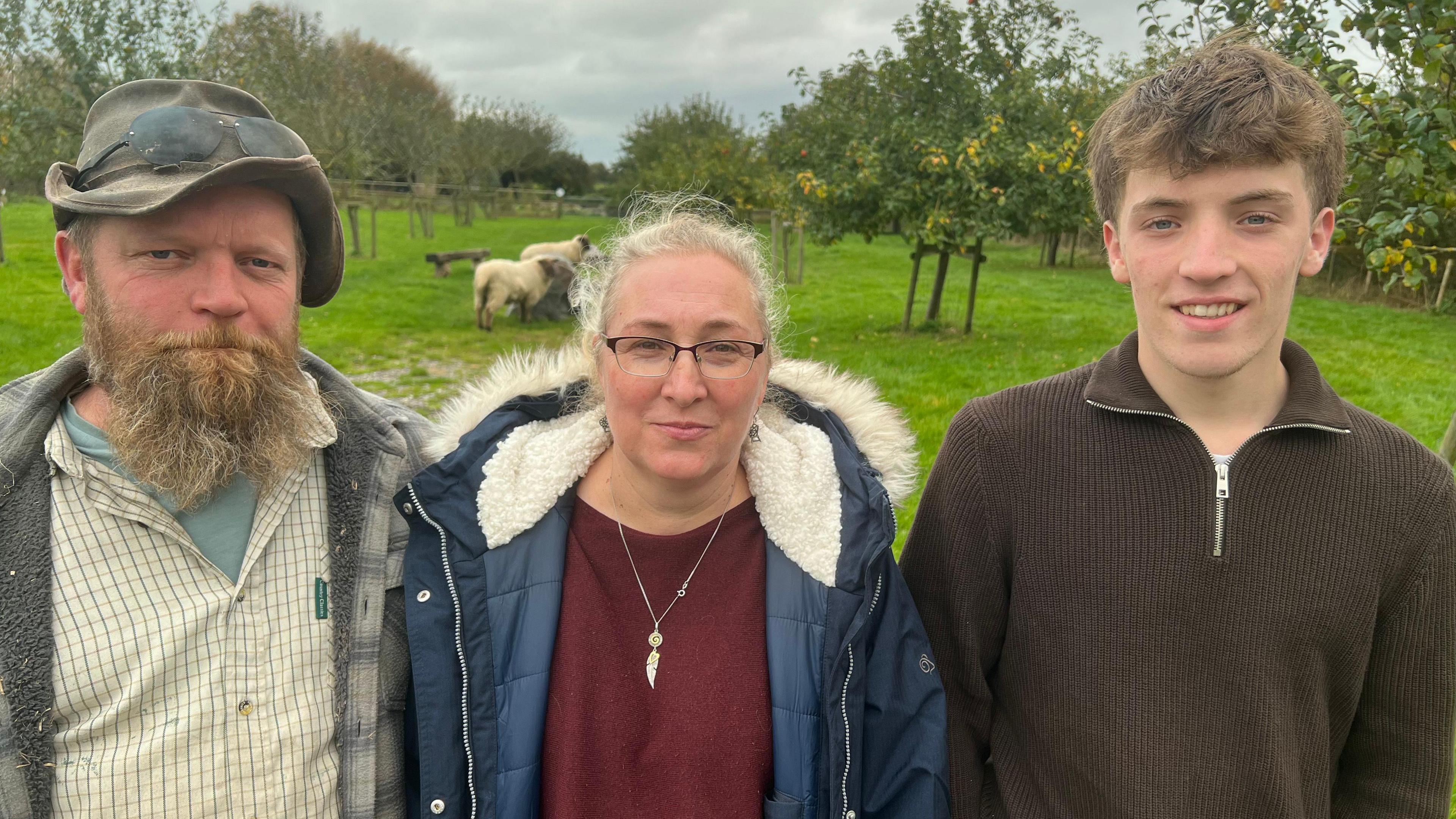
Family Dave, Kathrin and Seb Kirk say the prospect of the proposals is "devastating"
Dave, Kathrin and Seb Kirk have been living in Kingston Seymour for seven years.
They have set up various businesses on their land, including a campsite and two holiday cottages.
Mr Kirk said the first notice of EDF's proposals felt like an "ambush".
"They were talking of compulsory surveys within 10-15 days," he said. "It feels like an attack. I'm devastated at the prospect of it, it's horrendous."
Mrs Kirk said that all the animals that live on their land, including buzzards and barn owls, would have their habitats destroyed if the saltmarh plans went ahead.
'Co-create'
Seb Kirk, who is one day hoping to inherit his family's land, said the proposals were an "attack" on his future.
"It feels like a potential chance to make a lot of money from this area and enjoy my life has just been stripped away," he said.
Andrew Cockcroft, head of stakeholder relations at EDF, said he "understood concerns" and the company was exploring various options for the saltmarshes.
"We need to create a certain area of saltmarsh habitat and that may be in one area, it may be a mixture of the different areas we’re looking at.
"That depends on the environment of the land we’re surveying and exploring at the moment," he said.
"It’s really important for us as we move anything forward, if we do, to try and co-create so we can create a habitat that’s good for nature but is also good for people as well."
Follow BBC Somerset on Facebook, external and X, external. Send your story ideas to us on email or via WhatsApp on 0800 313 4630.
Related topics
- Published9 October 2024
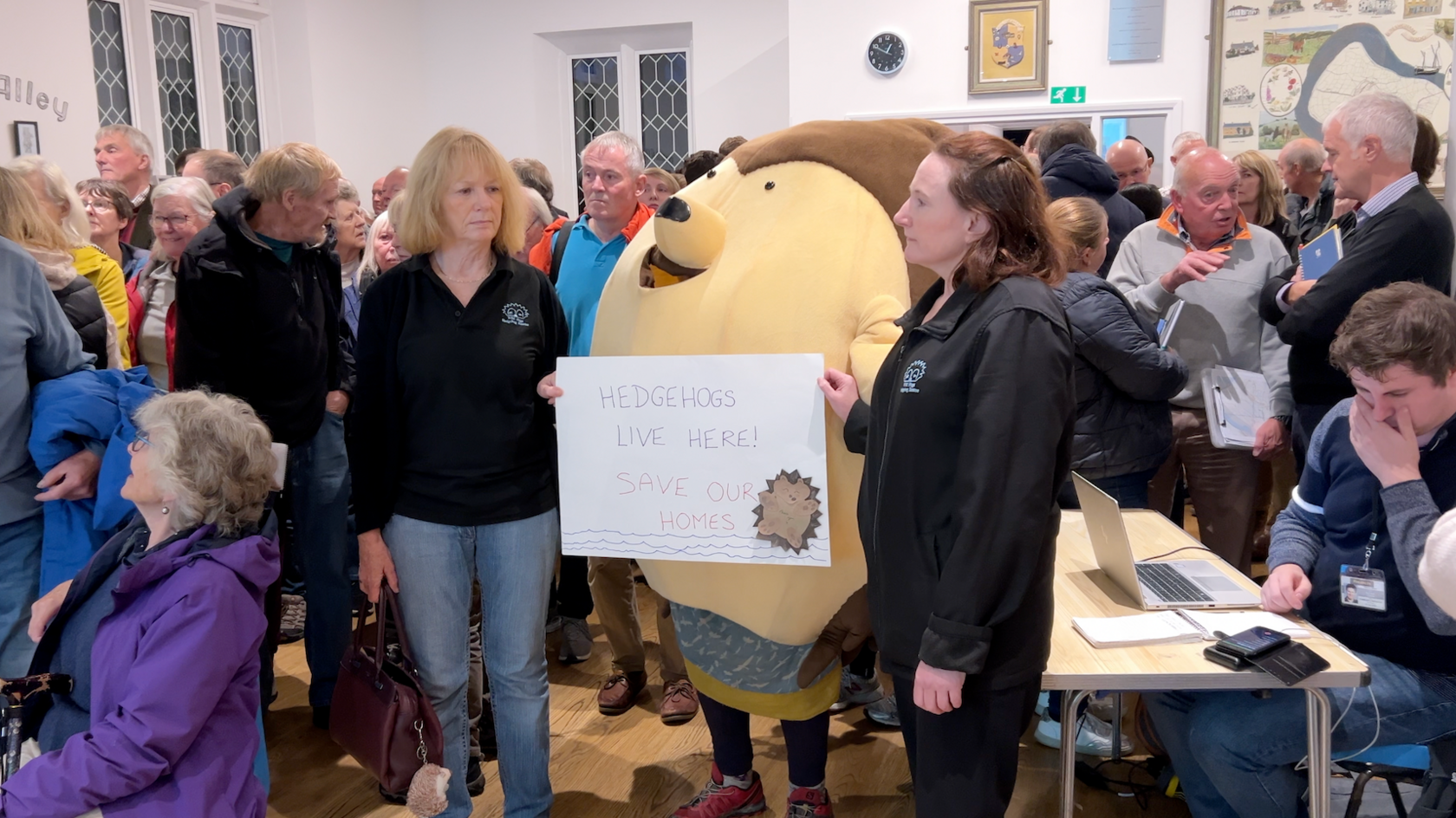
- Published11 September 2024
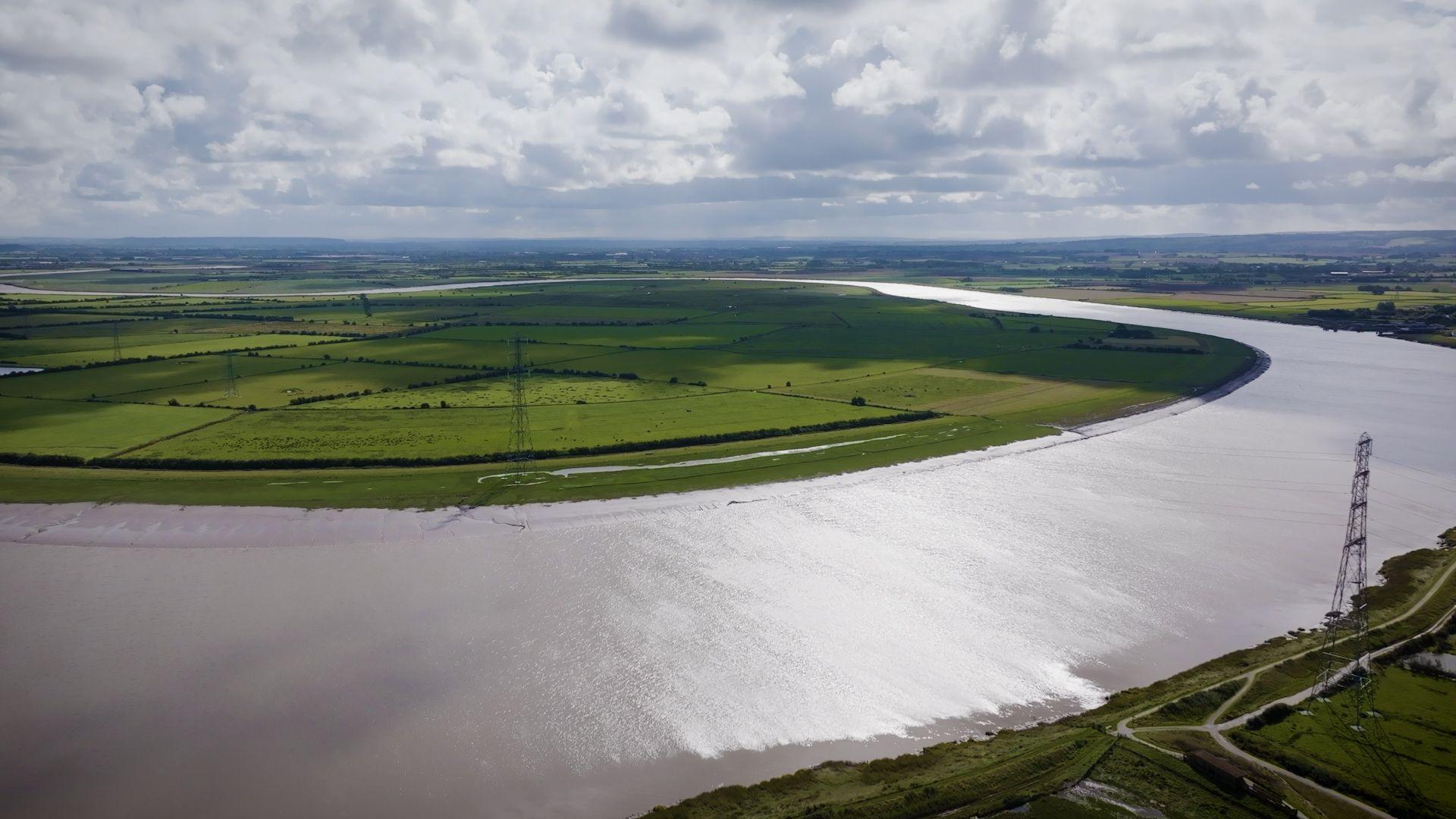
- Published19 September 2024
